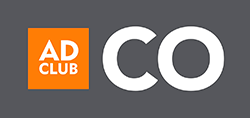The Powerful Impact of Intoxication on Creativity
Photo by Justin Aikin
By Trish Thomas, CEO of TEEM and Ad Club CO board member
Creativity is an interesting animal.
Is creativity a quality of our baseline personality? Is it a simply a brain function? Can we turn it on or off or amplify our capabilities? Is our capacity for creativity in our DNA from birth?
Being in the business of providing “creative” deliverables, I think about these questions a great deal. Like most agency leaders, I am constantly seeking out open-minded team members with the ability to think abstractly, brainstorm effectively, solve problems and push the envelope.
Personally, my go-to for opening the creative floodgates is red wine. My husband laughs over my strange writing ritual which consists of this: two glasses of wine = great writing. No more, no less. I honestly find it's easier to craft a compelling story or sharp script with a little help from a fine Spanish Tempranillo.
A few weeks ago, this use of “creative augmentation” got me thinking about the strange and long-standing relationship between intoxication and creative thought. Artists, writers, philosophers, dancers and many other creatives have long relied on alcohol, cannabis, psychedelic drugs, and other psychoactive substances to ignite and release their creativity. My personal experience with red wine validates my belief that sometimes a little outside stimulation helps, so I decided to dig into the subject.
In 2017, a study published in Consciousness and Cognition reinforced the notion that cannabis smokers creatively outperformed non-smokers over the course of two scientific tests. And this article from Psychology Today (also summarizing a study originally published in Consciousness and Cognition) shares the link between moderate alcohol intoxication and the creative process.
Because of social stigma, the war on drugs, and limited study of intoxication through a positive lens, much evidence is self-reported and anecdotal as opposed to scientific. But everyone from Alanis Morisette to Louis Armstrong, Steve Jobs to Aldous Huxley, F. Scott Fitzgerald to Modigliani, and tribes of the Amazon to Carl Sagan have credited an altered mental state with some of their greatest ideas and mental breakthroughs.
There must be something here.
I’m not a scientist, psychologist or sage, but here are my arguments for controlled intoxication to spark creativity and unleash the mind:
Suspend Overload & Distraction. As humans, we are overloaded. Overloaded with tasks, worries, and expectations, not to mention visual, auditory and tactile stimuli. Wonder depends on a fresh, focused experience of the thing in front of us. Wonder abides in the present. Our mind is naturally equipped with “reducing valves” of sorts that scan and dismiss a great deal of what we experience through our senses along with most of our random neural firings, which isn’t always a bad thing. But drugs remove these filters that stand between us and the world, allowing us to feel and to dream - and ultimately to create.
Remove Creative Blocks. Humans are full of pre-programming that makes us our own worst enemy (think guilt, fear, and social norms). Our programming must be quashed to open space for creation. Drugs lower our inhibitions, helping to quiet the inner critic and quell self-editing which in turn allows us to let our creativity shine and share our wildest ideas with the world. They remove creative blocks tied to our mood, duties, or preconceived notions of “self.” They spring us loose from the tyranny of responsibility and time. They allow brief moments of transcendence.
Create in the Present. Humans are creatively encumbered with the weight of past memories and future planning. As Nietzsche pointed out in his ground-breaking essay The Uses and Disadvantages of History for Life, we are our most joyful and confident when we “play in blissful blindness between the hedges of past and future.” He advocated for blocking out our consciousness through a process of radical editing that removes all concerns except the present moment, casting a magical vibrancy over whatever is left in our field of perception.
Return to Nature. Humans are not apart from nature - they are an integral part of nature. And plant-based intoxication has been around in both humans and animals from time immemorial. It’s the most natural thing in the world to seek an escape from our humdrum existence, an altered state of consciousness, where we can deeply relax and experience our senses in a new way. Whether through wine or weed (not substances that are too strong or addictive), we seek the release of something innately primal… simple, wise and pure.
I’m going to be forgiving about my personal creative ritual.
And maybe the next time I lift a glass of vino to my lips before cracking open my laptop I will have a greater appreciation for the sweetness of unfettered thought and the profound blessing of raw creation.
Trish Thomas is Managing Partner & CEO at TEEM, a marketing agency built on a best-in-class creative community. Change junkie. Innovator. Optimist. Protagonist. A true believer in the power of people to change the world.
*If you want to take a fascinating historical deep dive into intoxication and our complicated relationship with marijuana, I encourage you to read “The Botany of Desire” Chapter 3 by Michael Pollan.
**This article is not advocating for substance abuse or dependence. If you believe you have a problem with drugs or alcohol, please seek help immediately. The National Drug Helpline offers 24/7 drug and alcohol help to those struggling with addiction. Just call 1-844-289-0879 or visit http://drughelpline.org/.

